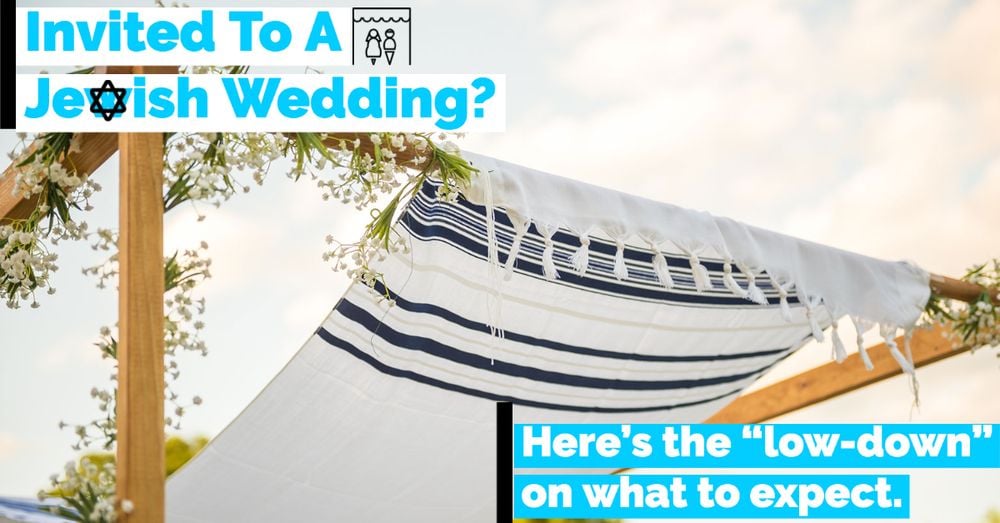
So you are scanning through your junk mail and see an invitation to a friend’s wedding. You have worked by his side for years, sharing in both occupational stressors and (a little) comic relief. However, the invitation is rather upfront, clearly labelling this wedding as a “Jewish Wedding.”
Oy Vey! What to do?
Sit down, grab a bagel (with some shmeer) and read through this simple article.
Not too hard?
What is a Jewish Wedding?
You are probably most familiar with some of the rituals, even if you have never been to a Jewish wedding. Like in every 90’s movie, you have the “glass-stomp” and the yelling of “Mazel Tov.” When we wish this on the couple, we are coming together, celebrating the miracle. If there is ever a time to celebrate, this is it.
The affair can be large or small, depending on the couple’s taste (and budget). Some couples have an extensive network, necessitating a longer guest list. On the other end, one can consider elopement. The “meat” of the wedding is the liturgy, composed of vows, prayers, and so forth. The expectations are expressed in a “Ketubah,” the Hebrew marriage certificate. It can be beautifully done, with a bevy of customizable options to choose from.
Like all groups, Jews are not a monolith. If you attend a “Haredi” wedding, you will see a division between the males and females. This may be a shock to some but reflects their way of life. While eating can be done together, dancing occurs in a segregated fashion. On the other end of the spectrum, you have mixed-seating arrangements and non-kosher banquets. Regardless of the “type” of the wedding, your attendance is highly valued!
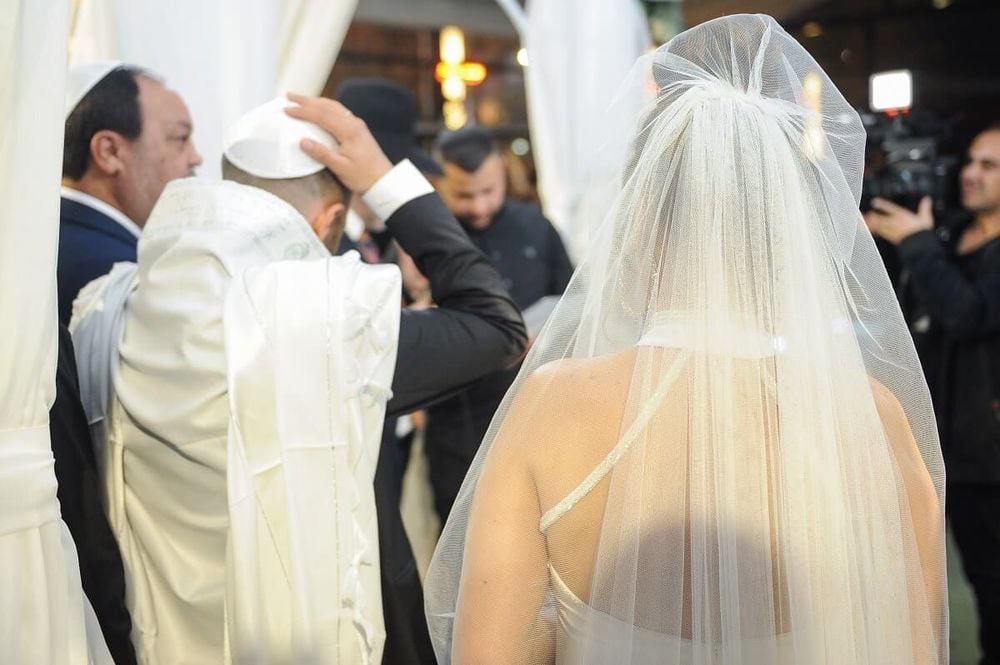
How to Prepare for a Jewish Wedding
You want to look your best, making the best impression on anyone you meet. For men, it is pretty simple, simply finding a well-fitted suit. If the male does not have a “kippah–or skullcap–they will have some to give out. Women can wear either a bridesmaid dress (assuming they are a bridesmaid) or another fashionable number. You can wear any colour you like as no colour is taboo. Wedding kippahs are usually satin material inscribed with the couple’s name on the inside. It is yours to keep, potentially setting yourself up as a “kippah collector.” If you have a hard time keeping it on your head, try rubbing it on your hair. The static should keep it in place, at least for the duration of the service. The wedding (itself) is not long in duration, roughly within the 25-60 minute range.

While it is best to come on time, Jewish weddings are rarely planned. The bride looks fantastic, wearing the perfect dress from the best bridal boutique in town. Even when it is time to start, there are still more photo ops., once-in-a-lifetime memories that encapsulate the essence of their family. It is not every day that people can get together, especially if they live far away from each other. And with this Pandemic, who knows when people can get together again? Sure we celebrate the couple, but we are also celebrating the family supporting the couple. Jews recognize the value of family, spending time with the people we share so much with. Who else can understand our “craziness,” understanding the nuances of our mood and behaviour?
Even if you are not family, it means a lot to be invited to a Jewish wedding. It means that you have a strong relationship with a “member of the tribe,” being included in such an important day. When you come, come hungry and with a smile. The food is incredible, regardless of whether the family is Ashkenazi, Sephardic, Indian, Azerbaijani or Mizrachi. Each culture has its flavour, its spin on wedding attire, food, dancing, and ceremony. In this plurality, you will see an underlying commonality, a deep love for family and optimism.
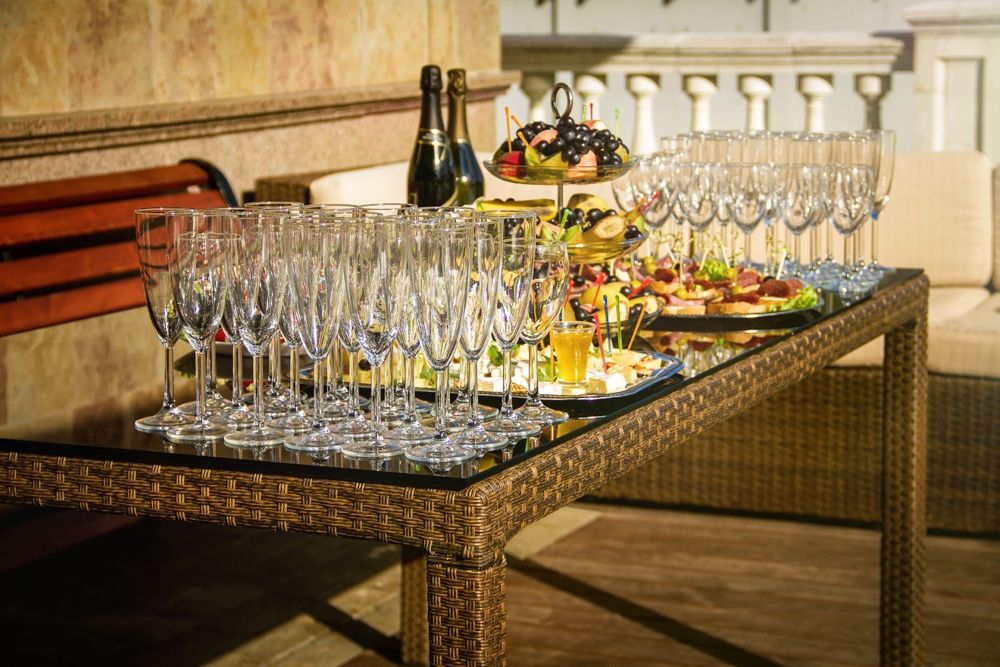
Overview of the Ceremony
The marriage itself will be performed by a Rabbi, authorized by both the government and their governing body. They will recite a series of prayers, each taken from the Hebrew Scriptures. Deeply poetic, the liturgy is musical, flowing gracefully between stanzas. The ceremony will have an English component, connecting the prayers to the couple, explaining the meaning and context. It may include a sermon of some type, discussing the virtues of marriage and community. The objective is to inspire not only the couple (but also) the guests, taking something meaningful away with them.
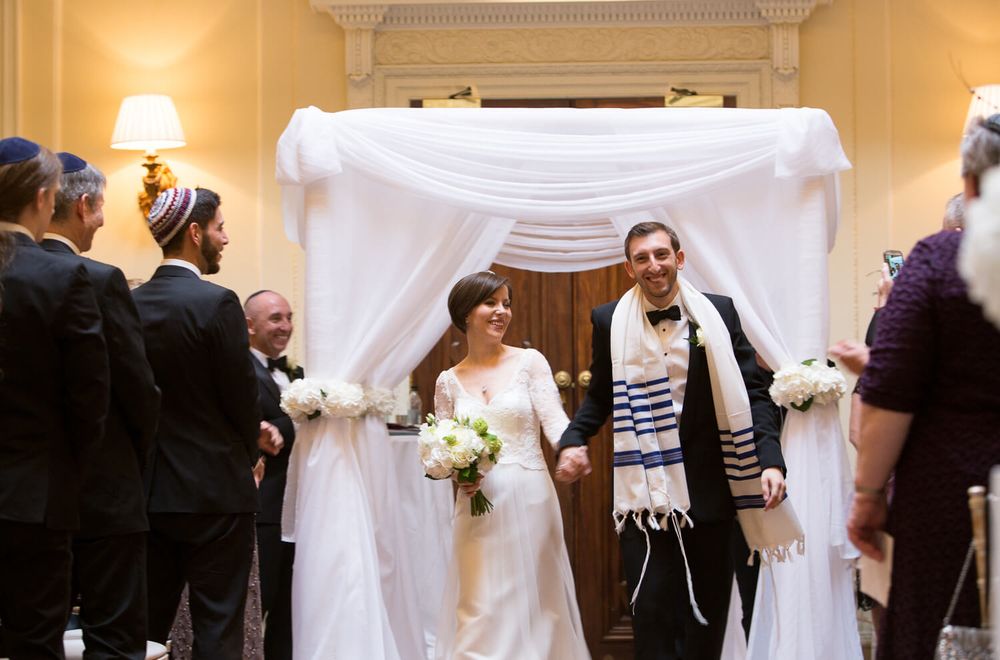
The ceremony will occur under a “Chuppah,” a beautiful marriage canopy. It symbolizes their first home, one distinct from the other homes they have previously occupied. It is supported by four supporting beams, either secured in the group or held up by honoured guests. The rabbi will recite some prayers over the bread and wine, illuminating their souls, joining them in unity. The guests subsequently share this, partaking in the holiness that transpires in that (particular) moment. Christians can see a parallel to Eucharist–or Communion–which has roots in the Jewish Tradition. Regardless of your faith, you are welcomed as an equal.
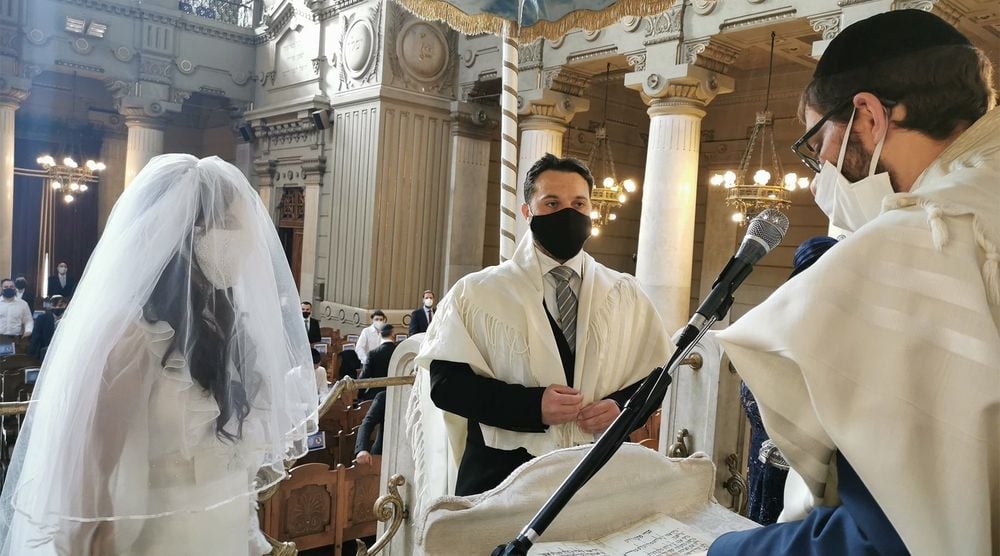
The ceremony will conclude with the groom stomping on the glass in the same fashion as described at the beginning of this article. Then, feel free to stand up, clap, and throw some candies. Please do not feel so bad as they are jelly-like in the constitution, leaving little room for injuring the newlyweds. This is the “other prime-time” time for picture taking, taking a little time for a glass of wine or scotch. Feel free to drink, mingling with other people you recognize. Be open to meeting new people as this is a great time to network and connect.
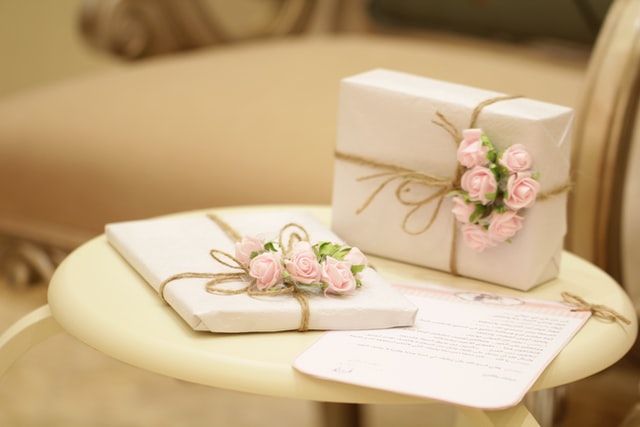
If you are curious about gift-giving, perhaps consider something not too cumbersome or significant. Instead of buying the couple “a toaster,” consider giving a gift card instead. Cash always works, especially if they are saving up for a new house. Put yourself in the shoes of the new couple, thinking about things–or plans–that you have discussed with them. If you are entirely out of ideas–or the couple is already “set-up”–consider donating money to a charity in their name. This shows both care and thoughtfulness.
Author: Brother Jeremy Wedding Officiant – Registered Wedding Officiant Serving Toronto, Muskoka, Mississauga, Durham, Prince Edward Country and Beyond.













It sure was interesting when you said that a Rabbi is authorized by both the government and their governing body to perform a wedding ceremony. This reminds me of a close friend of mine who shared with me two weeks ago that she is looking to find a reliable Jewish ceremony officiant for her daughter’s wedding next month. I will share your blog with her so she can be provided with more tips on finding an officiant.